Below you will find the latest courses. Please search or select the courses based on the below filters.

Module 2: EEG
Mike X. CohenIn this module, you will work with human EEG data recorded during a steady-state visual evoked potential study (SSVEP, aka flicker). You will learn about spectral analysis, alpha activity, and topographical mapping. The MATLAB code introduces functions, sorting, and correlation analysis.

INCF Assembly 2022 - Day 1 Sessions
INCFSessions from the INCF Neuroinformatics Assembly 2022 day 1.
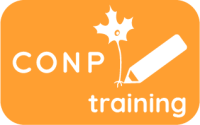
GLM, Regression Models, and Latent Variables
Difficulties experienced in understanding machine learning techniques often stem from lack of clarity concerning more basic statistical models and fundamental considerations, including the various regression models that can all be subsumed under the General Linear Model.

Deep Learning: Control
NYU Center for Data ScienceThis module covers the concepts of model predictive control, emulation of the kinematics from observations, training a policy, and predictive policy learning under uncertainty. It is a part of the Deep Learning Course at NYU's Center for Data Science, a course that covered the latest techniques in deep learning and representation learning, focusing on supervised and unsupervised deep learning, embedding methods, metric learning, convolutional and recurrent nets, with applications to computer

Neuroscience for Machine Learners (Neuro4ML)
Neural Reckoning GroupThis is a freely available online course on neuroscience for people with a machine learning background. The aim is to bring together these two fields that have a shared goal in understanding intelligent processes. Rather than pushing for “neuroscience-inspired” ideas in machine learning, the idea is to broaden the conceptions of both fields to incorporate elements of the other in the hope that this will lead to new, creative thinking.

Neuroimaging Connectomics
Krembil Centre for NeuroinformaticsThis course consists of one lesson and one tutorial, focusing on the neural connectivity measures derived from neuroimaging, specifically from methods like functional magnetic resonance imaging (fMRI) and diffusion-weighted imaging (DWI). Additional tools such as tractography and parcellation are discussed in the context of brain connectivity and mental health. The tutorial leads participants through the computation of brain connectomes from fMRI data.

INCF Assembly 2022 - Day 2 Sessions
INCFSessions from the INCF Neuroinformatics Assembly 2022 day 2.

Module 4: fMRI
Mike X. CohenThis module covers fMRI data, including creating and interpreting flatmaps, exploring variability and average responses, and visual eccenticity. You will learn about processing BOLD signals, trial-averaging, and t-tests. The MATLAB code introduces data animations, multicolor visualizations, and linear indexing.

INCF Assembly 2022 - Day 1 Sessions
INCFSessions from the INCF Neuroinformatics Assembly 2022 day 1.
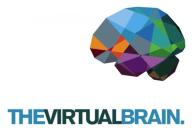
The Virtual Brain Node #10 Workshop: Personalized Multi-Scale Brain Simulation
The Virtual BrainThis workshop provides basic knowledge on personalized brain network modeling using the open-source simulation platform The Virtual Brain (TVB). Participants will gain theoretical knowledge and apply this knowledge to construct brain models, process multimodal neuroimaging data for reconstructing individual brains, run simulations, and use supporting neuroinformatics tools such as collaboratories, pipelines, workflows, and data repositories.
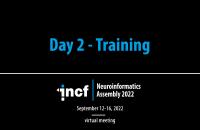
INCF Assembly 2022 - Training Day 2
INCFThis course contains sessions from the second day of INCF's Neuroinformatics Assembly 2022.

Session 7: Practical Guide to Overcome the Reproducibility Crisis in Small Animal Neuroimaging: Workflows, Tools, and Repositories
INCFThe workshop will include interactive seminars given by selected experts in the field covering all aspects of (FAIR) small animal MRI data acquisition, analysis, and sharing. The seminars will be followed by hands-on training where participants will perform use case scenarios using software established by the organizers. This will include an introduction to the basics of using command line interfaces, Python installation, working with Docker/Singularity containers, Datalad/Git, and BIDS.

Data Science and Neuroinformatics
INCFMuch like neuroinformatics, data science uses techniques from computational science to derive meaningful results from large complex datasets. In this session, we will explore the relationship between neuroinformatics and data science, by emphasizing a range of data science approaches and activities, ranging from the development and application of statistical methods, through the establishment of communities and platforms, and through the implementation of open-source software tools.
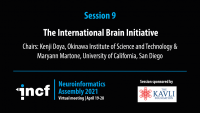
The International Brain Initiative (IBI)
INCFThe International Brain Initiative (IBI) is a consortium of the world’s major large-scale brain initiatives and other organizations with a vested interest in catalyzing and advancing neuroscience research through international collaboration and knowledge sharing. This session will introduce the IBI and the current efforts of the Data Standards and Sharing Working Group with a view to gain input from a wider neuroscience and neuroinformatics community.
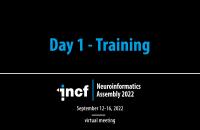
INCF Assembly 2022 - Training Day 1
INCFThis course contains sessions from the first day of INCF's Neuroinformatics Assembly 2022.

FAIR neuroscience and EBRAINS tools for data sharing, analysis, and simulation
INCFThis workshop provides an opportunity to explore the advanced tools and techniques for data sharing, analysis, visualization, and simulation.

INCF Assembly 2022 - Day 1 Sessions
INCFSessions from the INCF Neuroinformatics Assembly 2022 day 1.

Population-Based Data Resources & Integrative Research Methods
Krembil Centre for NeuroinformaticsAs research methods and experimental technologies become ever more sophisticated, the amount of health-related data per individual which has become accessible is vast, giving rise to a corresponding need for cross-domain data integration, whole-person modelling, and improved precision medicine. This course provides lessons describing state of the art methods and repositories, as well as a tutorial on computational methods for data integration.

Reinforcement Learning
Neuromatch AcademyNeuromatch Academy aims to introduce traditional and emerging tools of computational neuroscience to trainees.
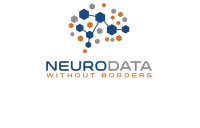
Introduction to Neurodata Without Borders (NWB) for MATLAB Users II
NWB Core Development TeamThe Neurodata Without Borders: Neurophysiology project (NWB, https://www.nwb.org/) is an effort to standardize the description and storage of neurophysiology data and metadata. NWB enables data sharing and reuse and reduces the energy-barrier to applying data analytics both within and across labs. Several laboratories, including the Allen Institute for Brain Science, have wholeheartedly adopted NWB.
